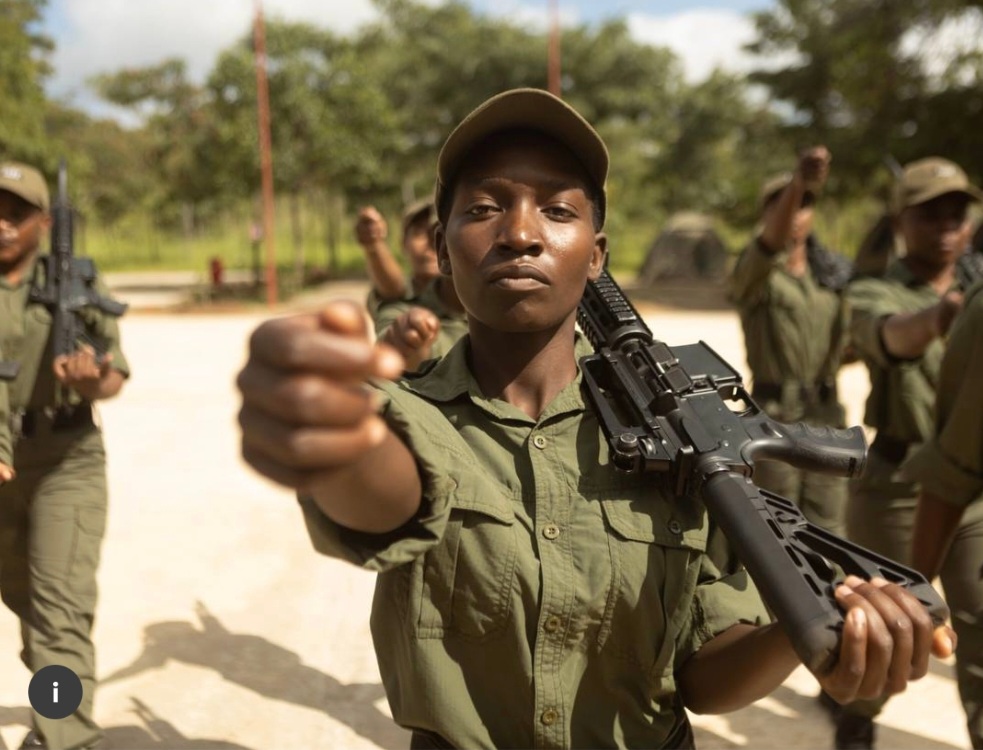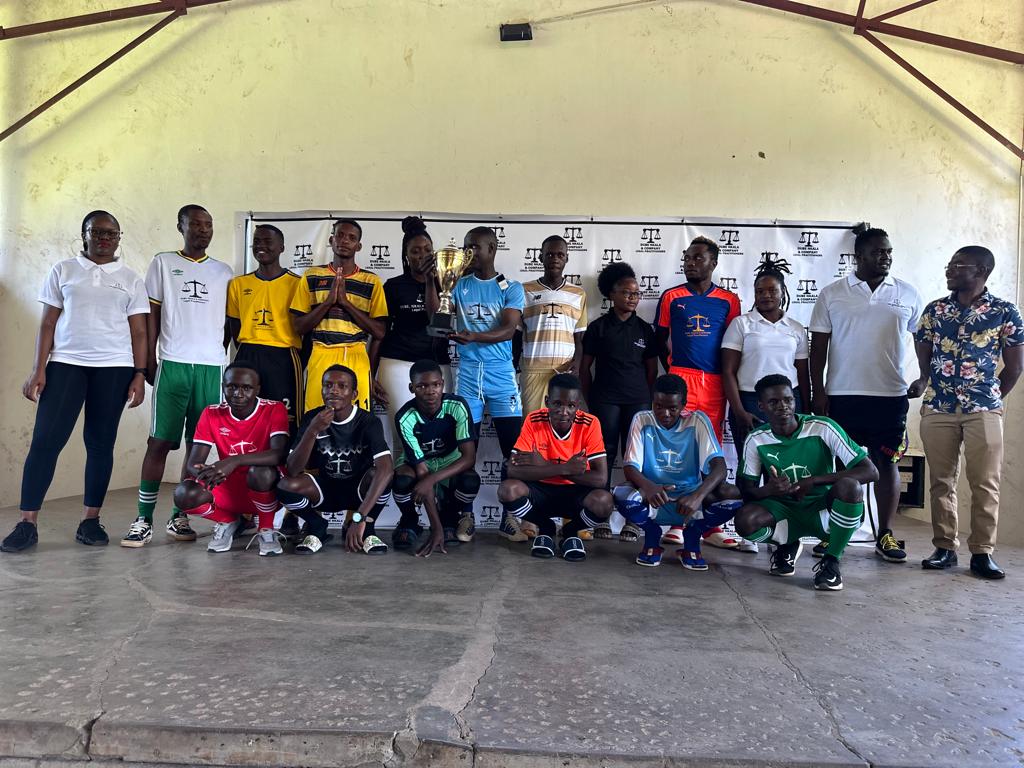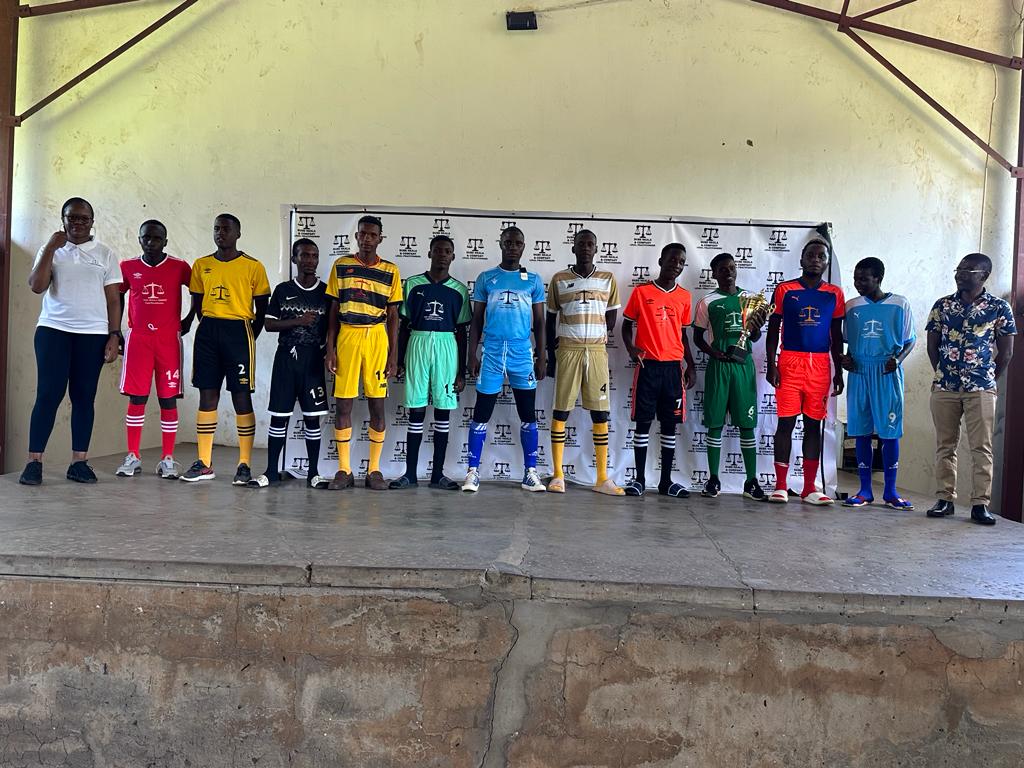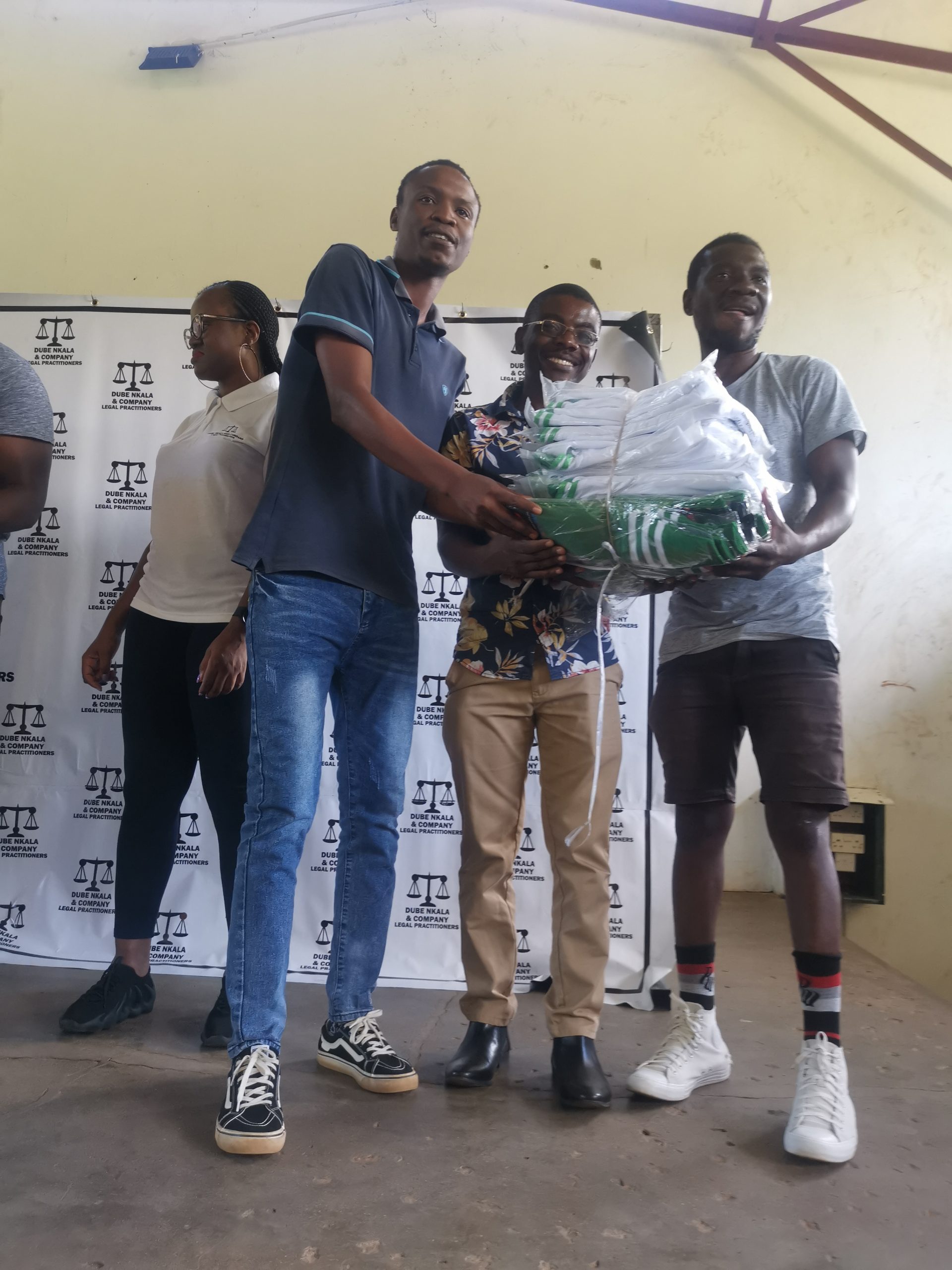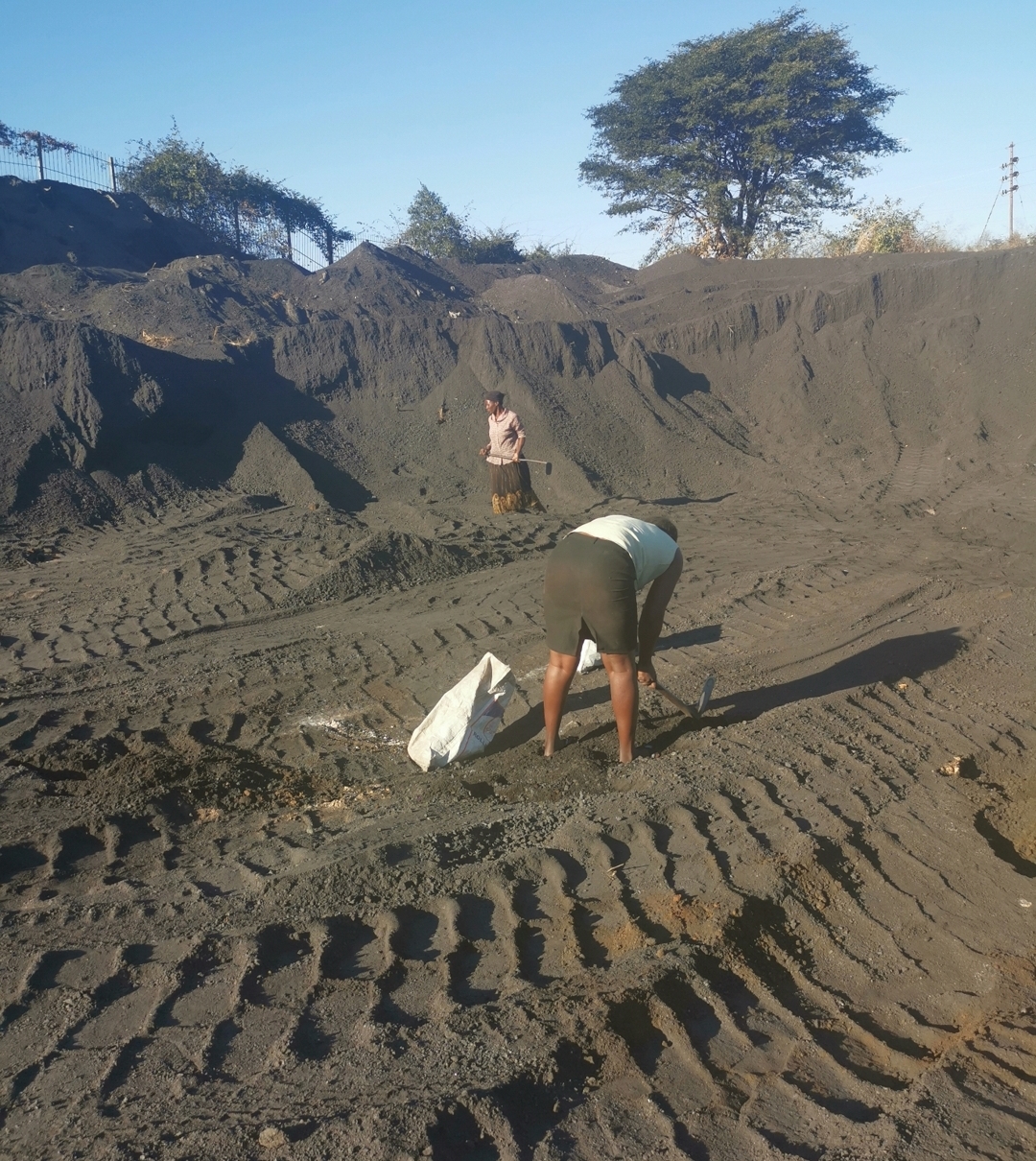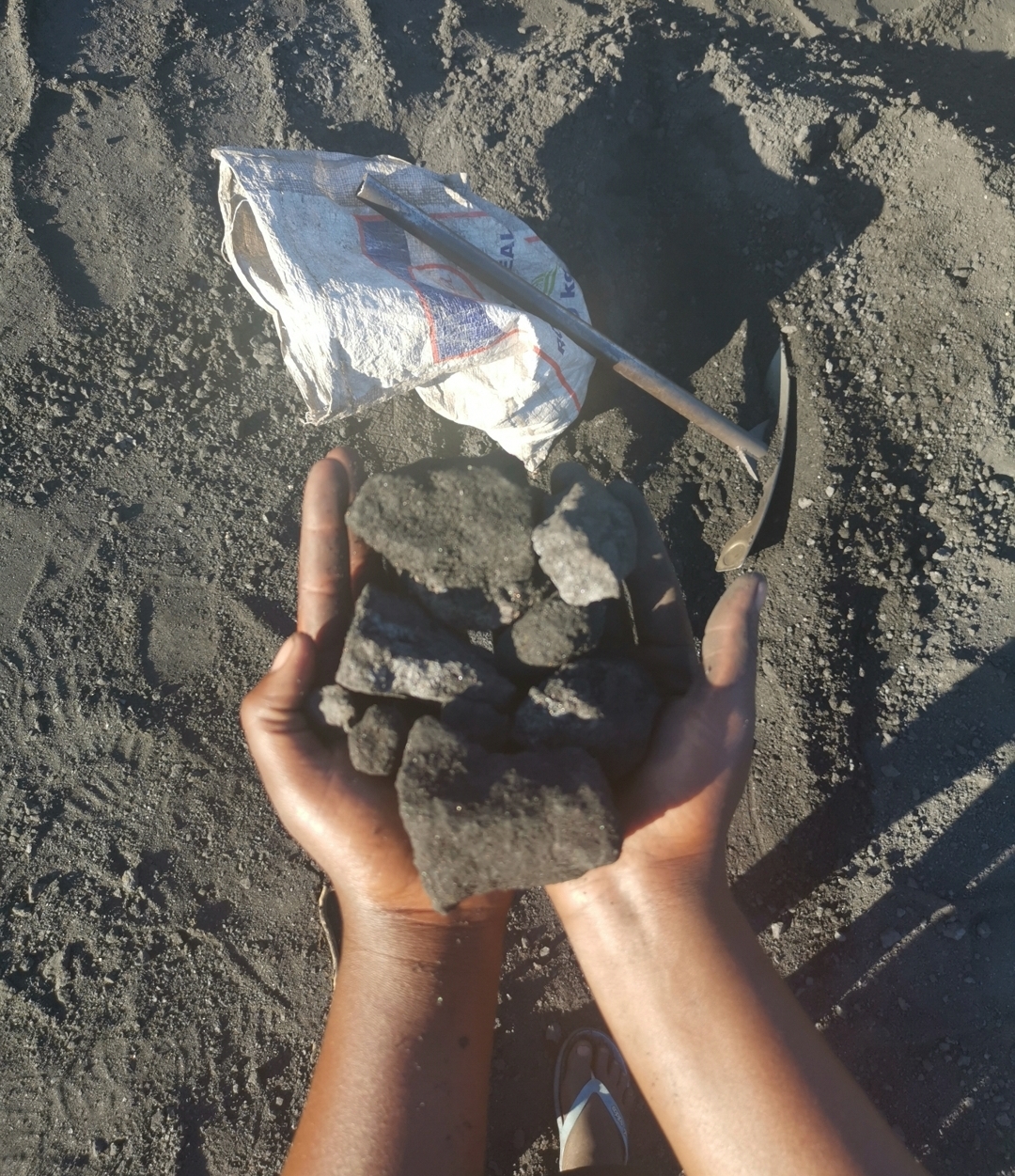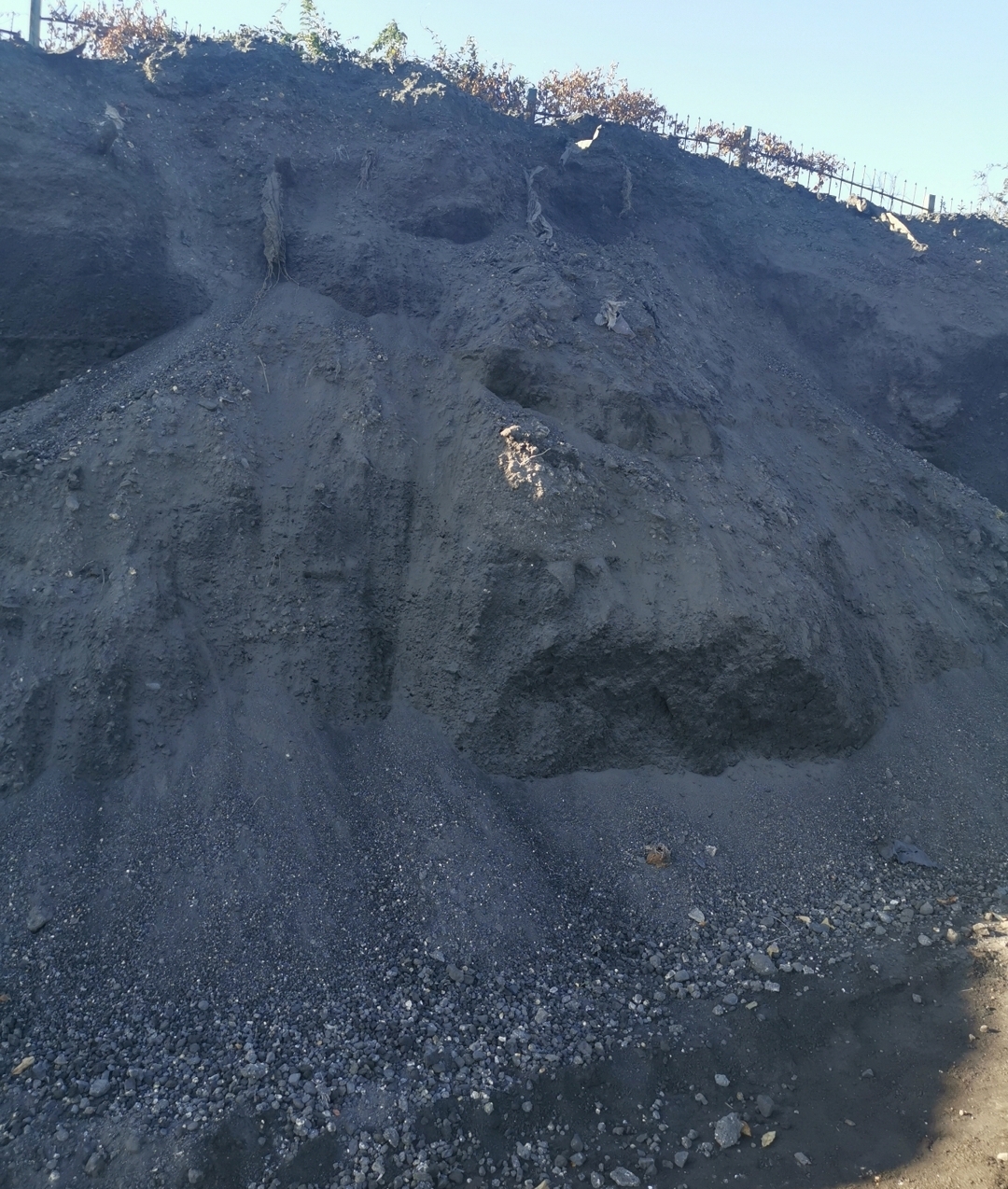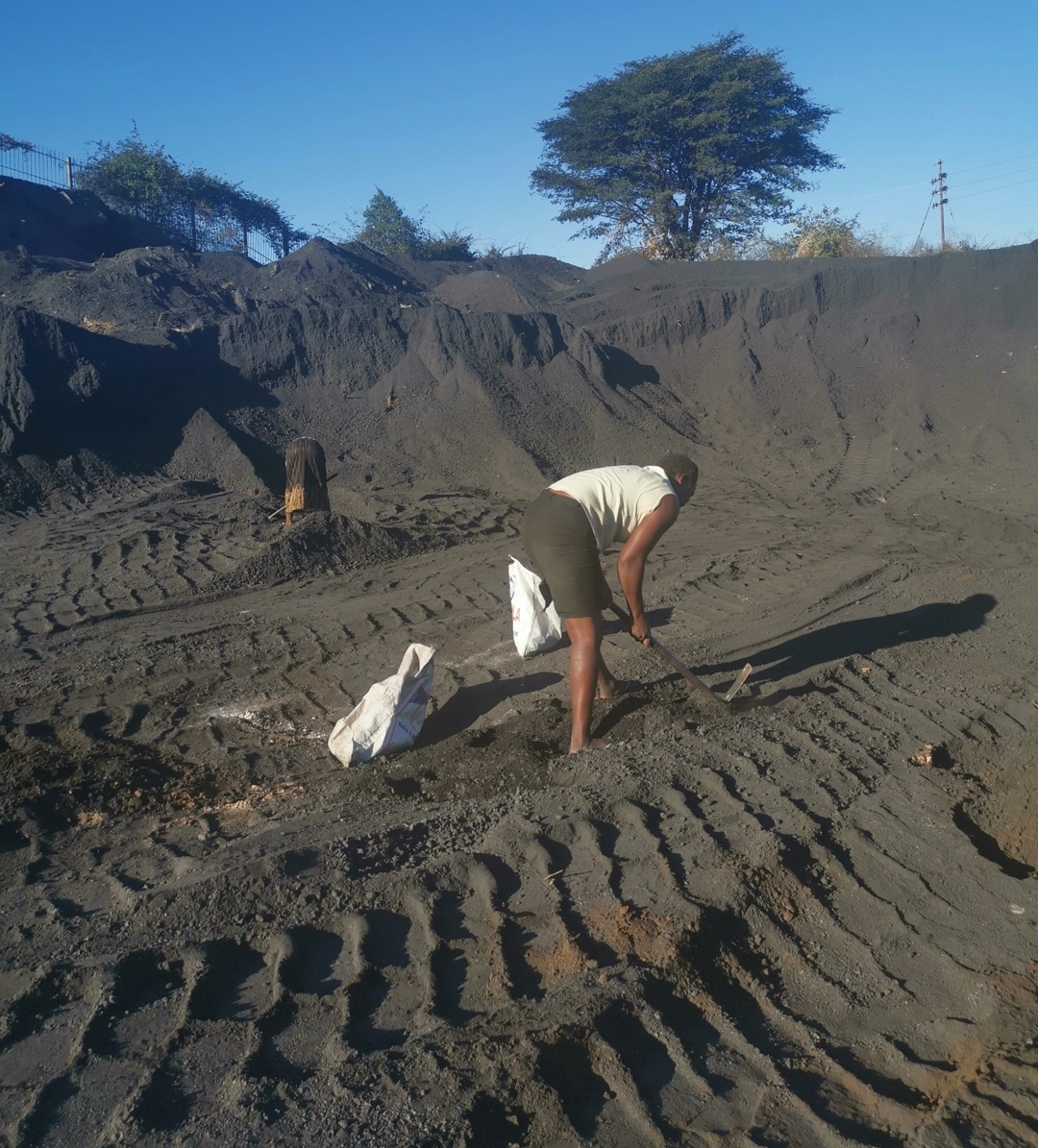BY FARAI SHAWN MATIASHE
Sharai Tunhira frowns with focus as she runs through drills with her all-female patrol team – each woman armed and ready for the many men they catch poaching wildlife in their corner of northern Zimbabwe.
Despite the risks of the job, she says joining the military-style unit has given her the chance to protect the wildlife she loves while also earning a decent livelihood in a rural area where many poor women struggle to make ends meet.
“Here I am occupied and empowered. I do not depend on a man to survive,” said Tunhira (25) who joined the team in 2021 after years eking out a living as a cleaner and vegetable seller.
The Akashinga unit – aka ‘The Brave Ones’ in the Shona language – says it aims to change the face of conservation as the country’s first armed, all-women anti-poaching unit.
The unit is a rarity in a sector dominated by men.
One in five African rangers is female, according to a 2016 World Wildlife Fund survey of 570 rangers, though the continent has a handful of female teams including South Africa’s Black Mambas and The Lionesses rangers in Kenya.
Established in 2017 by Damien Mander, an Australian ex-commando, Akashinga has since grown to a total of 200 heavily-armed rangers who patrol eight reserves in the Lower Zambezi Valley under contracts with three district councils.
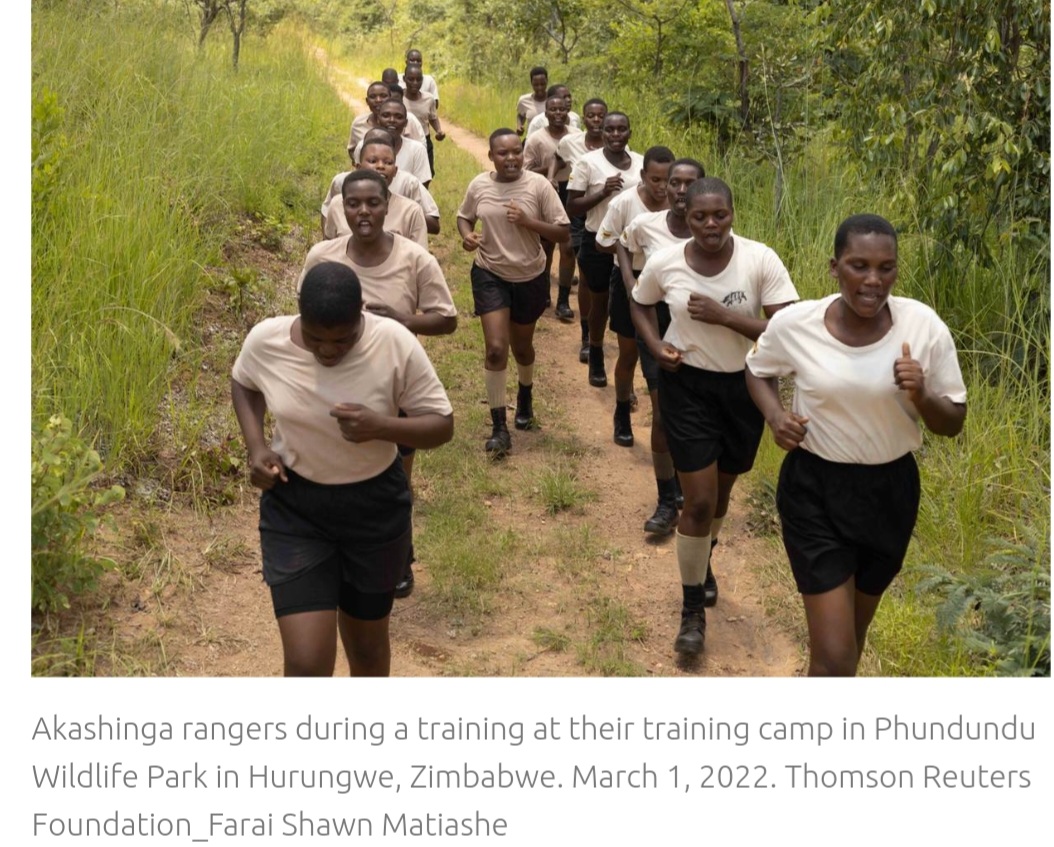
Wildlife
Zimbabwe is home to some 80,000 elephants, about a fifth of Africa’s total, conservationists estimate.
Numbers have declined sharply in recent years, mostly due to poaching, illegal hunting and drought.
The Zambezi Valley, which spans the border with Zambia, is home to thousands of elephants as well as lions and cheetahs.
Military-style units such as Akashinga are controversial.
Some conservationists have said armed rangers using battle tactics have harmed and intimidated local residents in wildlife areas and fail to tackle the root causes of poaching.
Akashinga is part of the International Anti-Poaching Foundation (IAPF), a non-profit founded in 2009 by Mander.
The IAPF says the unit focuses on protecting wildlife via community engagement, from improving sanitation to creating jobs.
Mander said IAPF did initially focus on defending the area it protected but such criticism is outdated, with a shift to recognising conservation as a social issue that involves educating and empowering the community.
“We used to be an organisation that was extremely law enforcement focused … We had helicopters, drones and military hardware,” he said.
“We do not have that now. This is less antagonistic.”
He defended the Akashinga unit’s continued use of semi-automatic and bolt action rifles as there is a real threat of poachers being armed with automatic weapons and the women should be prepared for the worst.
“For us not to train the rangers, whether men or women, to deal with the threat they will face will be irresponsible. We will be sending them to danger,” he said.
Having women as rangers “generally de-escalates tension”, said Mander, while teams that work in their home communities help foster productive relationships with residents.
The IAPF says since 2017, Akashinga rangers have made more than 300 arrests without firing a shot and helped drive an 80 percent downturn in elephant poaching in the Zambezi Valley, while wildlife sightings are up by almost 400 percent.
Its figures could not be independently verified but Ability Gandawa, lawmaker for Hurungwe North, which includes the Phundundu Wildlife Park, said animal sightings had increased.
“I am impressed by their solid effort to educate the community not to hunt wildlife,” he said.
“The effort has since made it possible to significantly reduce poaching in my area.”
Economic benefits
What is not in doubt is the benefit to the women rangers, who include survivors of domestic abuse, child brides, and girls who dropped out of school.
Rangers earn the equivalent of between US$300 and US$1,500 per month, a good salary in a country where teachers earn an average of US$120 per month.
“I had no idea that I would work in a formal setting as most jobs are for educated people,” said Tunhira, cradling a rifle, describing how her family could not afford for her to finish school.
Margaret Darawanda (24), another ranger and a single mother to a three-year-old daughter, recalled life pre-patrol when she depended on her mother, herself a poor farmer.
“The opportunity of becoming a ranger came when I needed it the most,” she said.
“I am now able to look after my mother, my child and my community,” she said, her sights now set on university.
Mander said 95 Percent of Akashinga’s rangers come from within 20 kilometres from the area they protect, with their salaries spent locally to the benefit of a wider area.
“We want to be a beacon of progression in the conservation industry,” he told the Thomson Reuters Foundation.
“The idea is for Akashinga to be a stepping stone towards women’s goals and following a career path.”
Domestic abuse
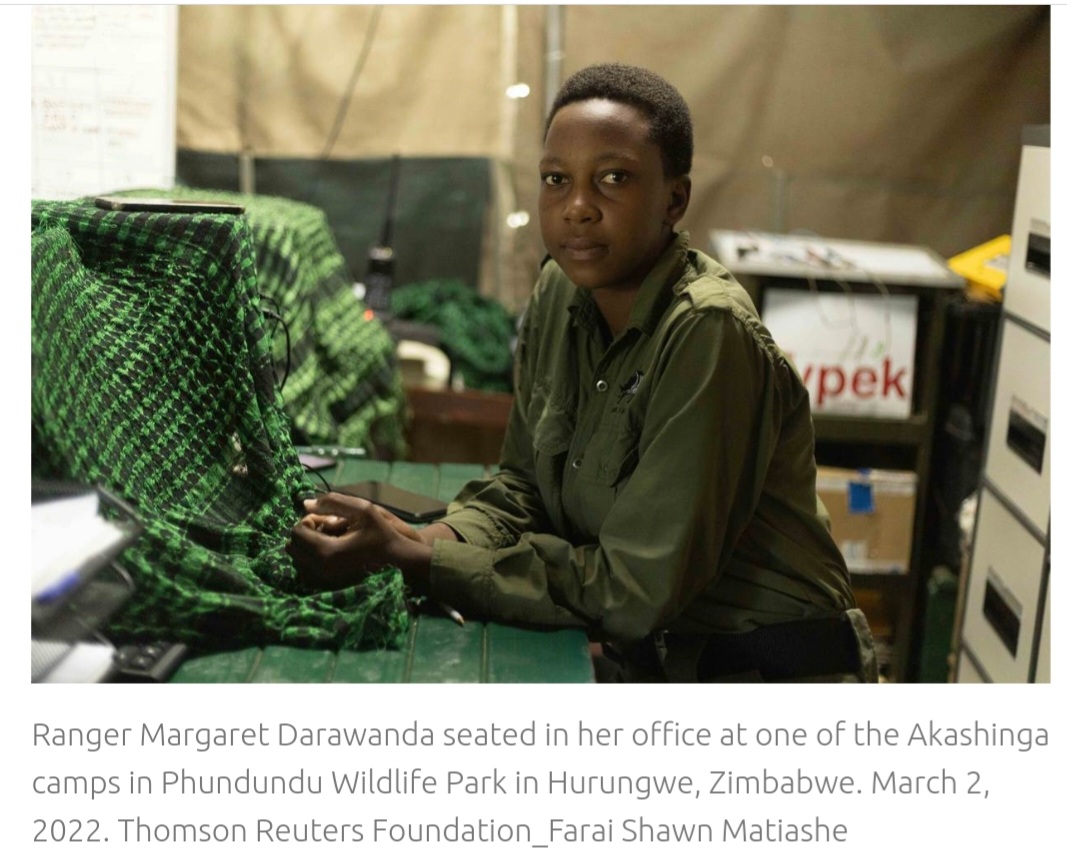
The IAPF aims to grow Akashinga to 1,000 rangers protecting 20 nature reserves by 2026.
Some said the unit gave them a safe haven after fleeing abuse, and a sense of solidarity as they support each other.
Esther Goboza (22), applied to join the rangers to escape an abusive marriage.
Her husband, in a bid to stop her from becoming a ranger, burnt her national identity card, a requirement for the job application.
“They gave me the opportunity. My husband even came to the training camp to take me home but I stood my ground,” said Goboza, who is now divorced.
Tracy Mukuni (32), quit her police job to join the unit as a trainer because she wanted to support other working women.
“It was about my passion to help my fellow women to achieve their goals,” said Mukuni, a sergeant instructor who trains rangers in fitness, bush survival skills and ethics.
“Out there they come face to face with armed poachers who are strong …
“These women need to be brave and skilled to protect wildlife. They also need to look after each other.” – Thomson Reuters Foundation

 Slider1 year ago
Slider1 year ago
 News1 year ago
News1 year ago
 Tourism and Environment2 years ago
Tourism and Environment2 years ago
 News3 years ago
News3 years ago
 News2 years ago
News2 years ago
 News2 years ago
News2 years ago
 News1 year ago
News1 year ago
 News2 years ago
News2 years ago
